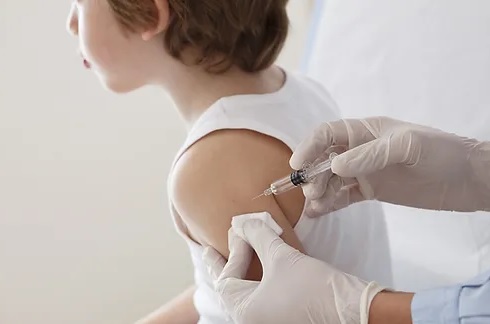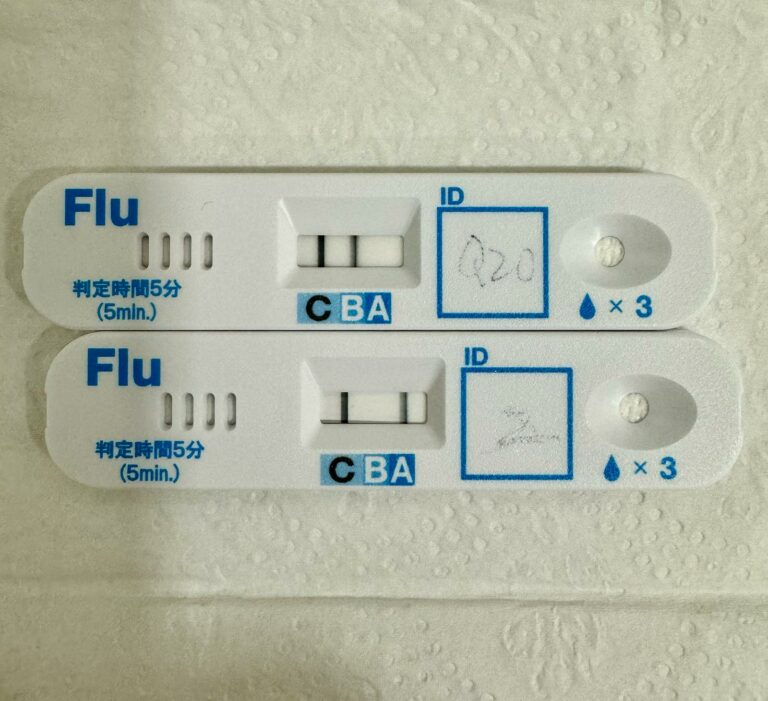A women’s health check is a medical examination that is specifically designed to evaluate a woman’s overall health, including her reproductive health. It usually includes a physical exam, a review of the woman’s medical history, and various tests to screen for common health issues, such as breast cancer, cervical cancer, and other conditions that can affect women.
Women are generally recommended to have a health check-up on a regular basis, with the frequency depending on factors such as age, family history, and overall health status. Regular health check-ups can help detect health problems early, when they are most treatable, and can also help women maintain good health and prevent future health problems.
All your questions about women’s health screening answered including what tests are involved from blood tests to imaging investigations. Also for each test, we cover what is the reasoning behind each test and how it is relevant to your wellness as a women and finally finish off with how to get ready for your women’s health check with your trusted doctor!
Check out the table of contents below to see what are the commonly asked questions and you can click to the relevant section for that answer or alternatively, you could read the whole post!
What do you call a check-up for a woman?
A check-up for a woman is commonly referred to as a women’s health check, women’s wellness exam, or simply a women’s exam. The specific name may vary depending on the healthcare provider or the healthcare system, but the purpose of the exam is generally the same: to assess a woman’s overall health, including her reproductive health, and to identify any health concerns or potential health risks that may need further evaluation or treatment.
Why is it important for females to get regular medical check ups?
It is important for females to get regular check ups to pick up any early signs of possible health problems which can be addressed early to prevent health deterioration. Many of the modern day illnesses that we face have underlying causes that may not present with symptoms early on – for example high blood pressure, diabetes, high cholesterol, breast cancer and cervical cancer.
There are ways to screen for these so that if they are detected early, they can be treated quickly so as to ensure good quality of life in the future.
What age should you get a well woman exam?
This really depends on the background of the woman. To screen for underlying health problems like high blood pressure, diabetes, high cholesterol, women can start screening from as early as 30 years old.
Breast cancer screening starts at 40 years old and for women should do cervical cancer screening as soon as they are sexually active. I will go through each of them in further detail below. Each person and their medical history is unique, so do find your trusted doctor to find out more.
How often should a woman get checked?
As a general rule of thumb, annually would be a good starting point, though specific types of cancer screening might have longer intervals like cervical cancer every 3 years and breast cancer every 1-2 hours depending on your age. Yearly would be a reasonable enough frequency to check on your blood pressure, sugar levels and cholesterol as well.

Is it worth getting a health check?
It is definitely worth it investing in the future of your health. Not checking does not mean health problems are not there. They may not be apparent to you now because you do not have symptoms but if left untreated for years to decades, it may manifest much later on in life and it will be more difficult for doctors to treat.
How long does a well-woman exam take?
It depends on how comprehensive the well-woman exam is. For the blood tests and the pelvic examination to do a pap smear, it would probably take about 15-20 minutes to gather the relevant medical background and do the tests.
Usually if there are other forms of imaging to be done like a breast ultrasound or a mammogram, the woman might have to go to a radiology centre to get it done and this process could take 30 minutes up to an hour, depending on whether there are abnormal findings.
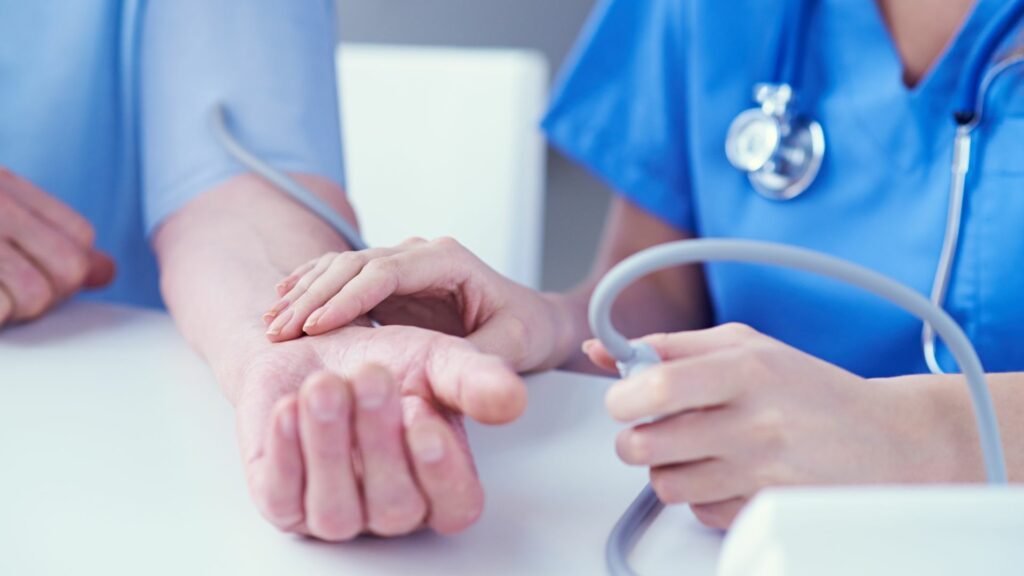
What do they do at a women’s check up?
This short section we will be talking about what is actually done during a women’s check up. Before commencing on the important health checks, the doctor will ask some basic questions about your background, any existing medical issues, or any bothersome symptoms that you would like checked out. This is important as a baseline so that the doctor can decide what tests are important and relevant for you.
What are the most important health checks?
The most important health checks include detecting underlying health issues that may not have symptoms like high blood pressure, high cholesterol and diabetes and also common female related cancers. I will elaborate on each part below.
What does a yearly check up consist of for a woman?
In a quick summary, depending on the age of the woman, the yearly check up would consists of blood tests, Pap smear and perhaps a mammogram. Further details for each test if discussed below.
Can you get a check up at your GP?
Most of the basic tests involved in a well woman’s health screening can be done with your general practitioner. If there are abnormal results that arise that may necessitate further review, your GP can advise you accordingly.
For instance, if the pap smear results shows some abnormal cells, you may be directed to a gynaecologist, or if the mammogram shows up some suspicious looking lump, you maybe advised to see a breast surgeon.
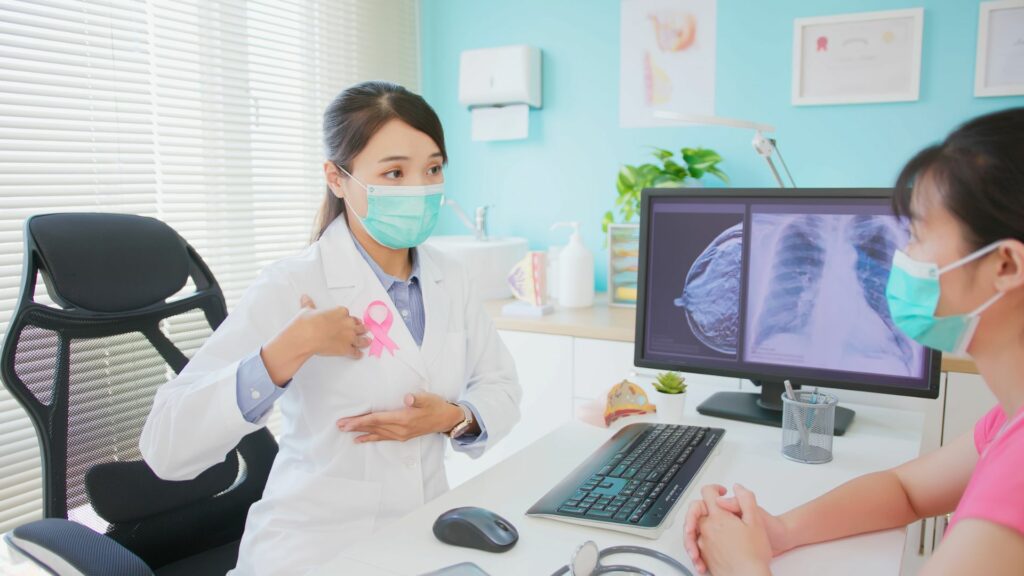
What blood tests should a woman get?
As a basic guide, I will usually just recommend screening for high blood pressure, high cholesterol and diabetes which is generally good enough on a yearly basis. What we see is that high cholesterol is a lot more common than the other 2 conditions and sometimes even if we do pick it up, oftentimes women are not ready to take medications. BUT I would say many women are willing to make small changes in their diet and lifestyle to make big differences in their health.
What are the most important blood test results?
The most basic and useful blood tests would be to check your fasting cholesterol levels (including good cholesterol HDL, bad cholesterol LDL and triglycerides). As an extension to that, we often advise to check the liver function as well because of possible fatty liver if the cholesterol is an issue.
Of course do not forget the fasting blood glucose to pick up any diabetes and occasionally we recommend the Hba1c (glycated haemoglobin) to monitor the sugar levels for the last 3 months. In addition, the kidney function test and urine tests can pick up any complications that diabetes or high blood pressure might have on the kidneys. Tumour markers is generally not the best way to screen for cancers and may or may not even be recommended as part of your woman’s health check-up.
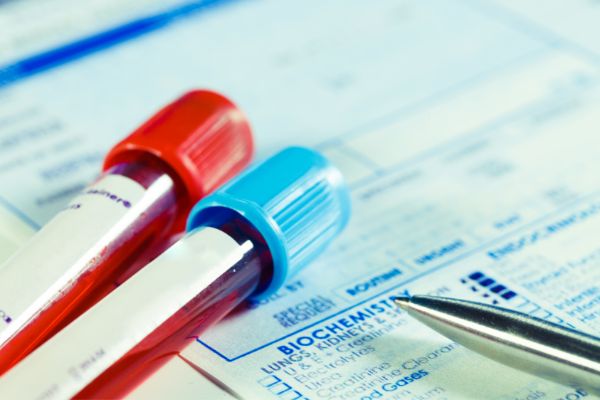
How often should you get blood work done in your 20s?
Like for all things in medicine, it depends on the individual patient and their health background. If there are existing medical problems that require regular review then annually would be a good starting point, for example, thyroid issues, menstrual issues, they all need regular monitoring.
For a completely healthy individual, regular blood work annually is definitely a personal preference but it should be tailored and suited to the patient. Tumour marking screening in a young individual might not necessarily be warranted and might cause a lot of unnecessary anxiety when a false positive result returns.
What lab tests should be done annually?
For us in our clinic, we have a few tiers of health screening we recommend but for the most basic, which is usually what we feel may be sufficient, depending on your health background, it includes the following:
Blood pressure check
Cholesterol check
Diabetes screen
Liver tests
Kidney tests
Bone and joint tests
Haematological blood check
Urine tests
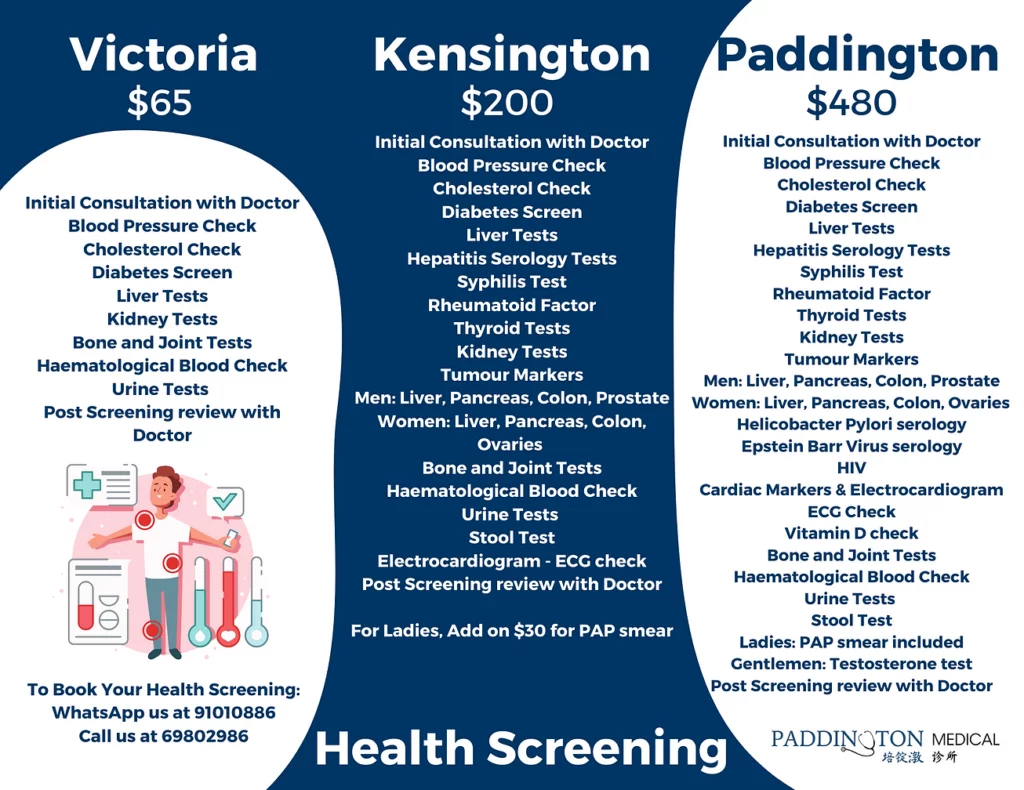
How often should a doctor check your breasts?
Most women do not go to see a doctor for regular breast checks until an issue arises like perhaps breast pain or a breast lump. If you do go for a regular yearly check up with blood tests with your doctor, it would be helpful to have a breast examination at the same time.
Later in this section, I will answer a few more questions about breast cancer.
Do you have to take your clothes off for a physical?
You definitely need to take your clothes off for a physical, with removal of your bra for adequate exposure and palpation by your doctor. If you feel uncomfortable with a male doctor, feel free to request for a female doctor as comfort during the examination is important. In our clinic, you could always arrange for an appointment to see our female doctor, Dr Zhang Huipei.
Do gynecologists check your breasts?
Yes so gynaecologists do check on women’s breasts, together with regular necessary pelvic examinations, pap smear or abdominal ultrasounds as needed. If you are comfortable with your regular general practitioner or family physician, they can help you check your breasts on a regular basis as well.
Do note though that should any specific abnormalities arise during the examination process or during any tests organized by your gynaecologist like a mammogram or a breast ultrasound, she would refer you to a breast surgeon, who might have to do further tests for you.
What is breast cancer?
Breast cancer is a type of cancer that forms in the cells of the breast. Breast cancer can occur in both women and men, but it is much more common in women.
Breast cancer usually begins as a small, painless lump in the breast, which can sometimes be felt through the skin or detected by mammogram. However, not all breast lumps are cancerous, and some breast cancers may not cause a lump at all. Other symptoms of breast cancer can include changes in the size or shape of the breast, skin changes, nipple discharge, or breast pain.
Breast cancer can be caused by a variety of factors, including genetic mutations, lifestyle factors such as diet and exercise, and exposure to environmental toxins. Risk factors for breast cancer include age, gender, family history, certain genetic mutations, early onset of menstruation, late menopause, and use of hormonal medications.
How to protect yourself against breast cancer?
Regular breast self examination on your own in the shower, best done after your period has ended can help to pick up abnormal lumps early. If you are between 40 to 49 years old, go for yearly mammogram and if you are above 50 years old then it is every 2 years.
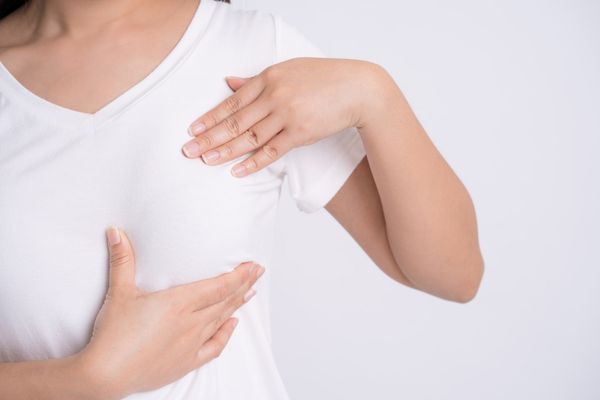
What is a mammogram?
A mammogram uses x rays between 2 plates on the breast to detect early signs of breast cancer even before they can be felt with the hand. For women who are less than 40 years old but with significant family history of breast cancer, there are other options for screening like ultrasound of breasts. Discuss with your trusted doctor what are the most suitable options for yourself.
When do you get called for first mammogram?
If you are between 40 to 49 years old, go for yearly mammogram and if you are above 50 years old then it is every 2 years. For the women in the former group, the breast tissues are denser and a mammogram may not be able to pick up abnormalities hence the more frequent screening interval. Wait until you are due before going for regular rescreening.

Does every girl need a pelvic exam?
No this may not be necessary. For the purposes of a well woman’s check-up, a pelvic examination may be required if a pap smear test is to be done. This test is especially important for women who are sexually active and are at risk of cervical cancer. More on this will be elaborated on further below. If you have never been sexually active before, we generally would not advised a pelvic exam and may suggest not to go ahead with the pap smear as the risk of cervical cancer would be much lower and the examination would be extremely uncomfortable.
Do you have to undress for a pelvic exam?
Yes for a pelvic examination for a woman, you would have to undress to remove any skirt or pants you have on and removal of undergarments as well. This is for adequate exposure for the doctor to examine and also to perform the pap smear test comfortably for you.
Is a pelvic exam awkward?
It may feel awkward for the first time when you do it as you might not know what to expect. Generally to perform the pap smear, the doctor would have to insert a plastic instrument called a speculum into the vagina (with necessary lubricants) and pull it apart to visualize the cervix (the bottom of the uterus), then proceed to use a small brush to brush the surface. Then the instrument is removed and the procedure is done, this could take as little as 5 minutes!
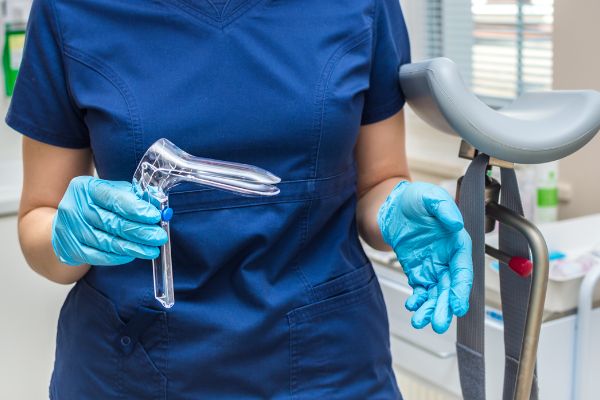
Does a female exam hurt?
The answer to this really depends on the doctor administering the test and the patient’s pain threshold. It is generally not a painful procedure but it can be quite uncomfortable, as is most forms of sample collection. After all, blood taking and nasal swabs are not particularly comfortable procedures as well. If done correctly and swiftly, it can be painless and at the very least, not an unpleasant experience.
What is cervical cancer?
Cervical cancer is a cancer arising from the cervix which is the bottom most part of the uterus, that is connected to the birth canal. It is caused by long lasting HPV (or human papilloma virus) infection that is commonly transmitted during intercourse.
How to protect yourself against cervical cancer?
There are 3 ways to protect yourself against cervical cancer and they include Pap smear and HPV DNA testing, which is what is covered in this section about pelvic examination. The last way is by cervical cancer vaccination.
What is cervical cancer vaccination?
This is a form of vaccination that protects against specific types of HPV infection that may lead to cervical cancer. It is approved for females aged 9 years and up. In the National Adult Immunisation schedule, it is recommended for 9 years to 26 years for cost effectiveness, but I would usually recommend any women who has had intercourse before to get it done. It is most effective if given before first such exposure but it can still benefit women who are already active but not yet exposed to the HPV subtypes covered by the vaccine.
What is a Pap smear?
It is a clinical test where you doctor will use a small instrument that is inserted into your birth canal to hold the walls apart and swab the cervix to collect its cells. It is used to detect potentially cancerous and precancerous cells on your cervix, which if detected early, can give you a greater chance at a cure.
When should a girl get her first Pap smear?
A girl should get her first pap smear the moment she starts to be sexually active. As cervical cancer is caused by human papilloma virus which is sexually transmitted, then monitoring of your cervix with regular pap smear should also commence once there is sexual exposure.
How is HPV DNA testing different from Pap smear?
In addition to the Pap smear that I mentioned, the HPV test will check if the cells from the cervix has the genetic material of the high risk cancer causing strains like type 16 and 18. This can be detected even before the Pap smear appears abnormal, which can lead to even earlier detection of possible future risk of contracting cervical cancer. This can also be similarly treated early.
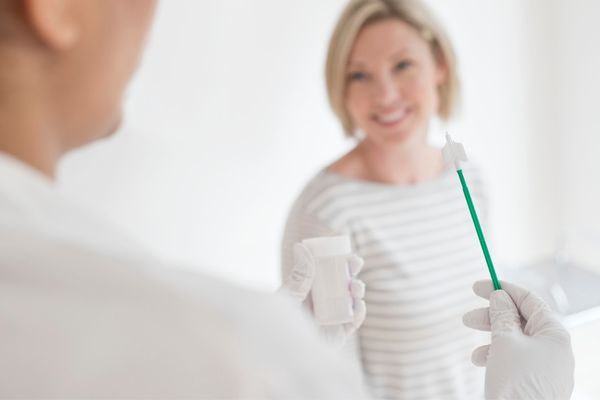
How to prepare for a female check up?
Now that you have read the above and you think that you are keen for your well woman’s check up, the next question you might have is do you need to prepare for it. This last section is sort of a brief guide of what to do before your check up so that you are ready.
What should I wear to a health checkup?
There is no specific attire to wear for a health checkup but wearing a blouse for easy exposure and examination of the breast and wearing a skirt or dress for an easier pelvic examination might be fasted and more comfortable for you and your doctor. Either way, all the tests can still be done irregardless of attire.
Should I be fast before medical check up?
For the blood tests specifically for the fasting glucose and cholesterol tests, you would need to be fasted for about 8 hours prior to the blood tests. So means skip your breakfast and that includes coffee or tea.
Can we drink water before health check up?
Plain water is fine to drink before the tests, it does not affect the blood tests results and it would make the urine collection easier for yourself.
What not to do before a pelvic exam?
For about two days before your pap smear test, avoid any intercourse or vaginal medications like suppositories or creams or local washes, as these may obscure your final results. Also pick the timing of your appointment about a week post the end of your menstruation.
Can you get a pap smear on your period?
If the menstrual flow is light it is actually possible to do, but we would generally recommend to get optimal results (after all you really only want to do the test once as much as possible), then visit the doctor about a week after your menstruation has completely ended.
At the same time, if your health screening involves doing a urine test, having some blood will obscure the results and you would have to make another trip to the doctor to submit your urine sample.

Conclusion of a woman’s check-up
We have covered the basics of what is involved in a well woman’s health screening and check up and that includes getting more information about your background medical history, examination, blood tests, breast examination and a pelvic examination.
For each specific test advised, we have also covered what is the reasoning behind each test and how it is relevant to your wellness as a woman. Finally we talked about how to prepare for your doctor’s check up so that you would not be caught unaware or feel awkward about it.
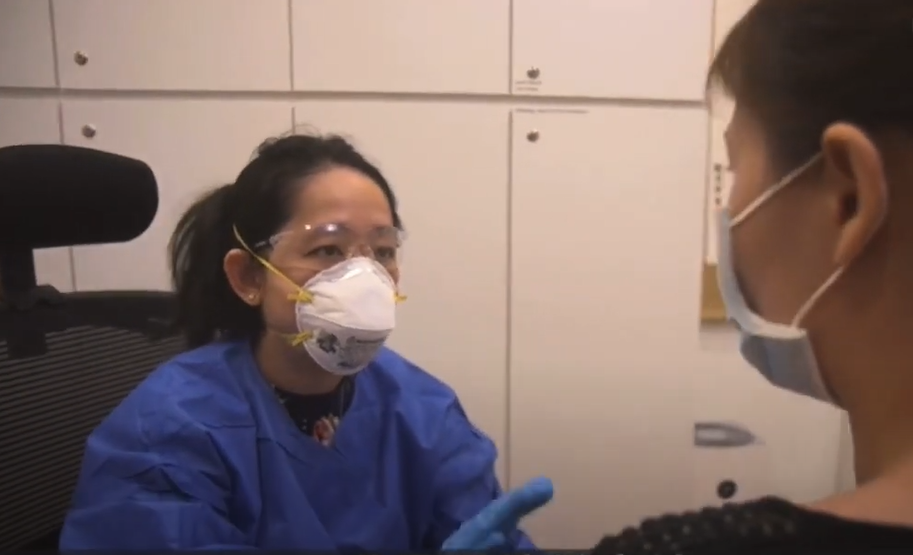
If you would like to learn more in depth about the right tests for yourself and also feel more comfortable with a female doctor, do head down to Paddington Medical Clinic to see Dr Zhang Huipei and ask any questions that you may have. As for the tests we have at our clinic, see the packages below, which will be advised accordingly by the doctor in the clinic, as you might only need to do the most basic tests needed. If you found this article useful and comprehensive, do remember to share it!
Also check out the short video clip below summarizing some of the important points in this article.
Click here to see more details above our health screening packages. If you are interested in finding out more about what are the relevant tests you need for your well women’s health screening, feel free to book an appointment down below or whatsapp us for an appointment. Take care and stay healthy!

GET IN TOUCH
Schedule a Visit
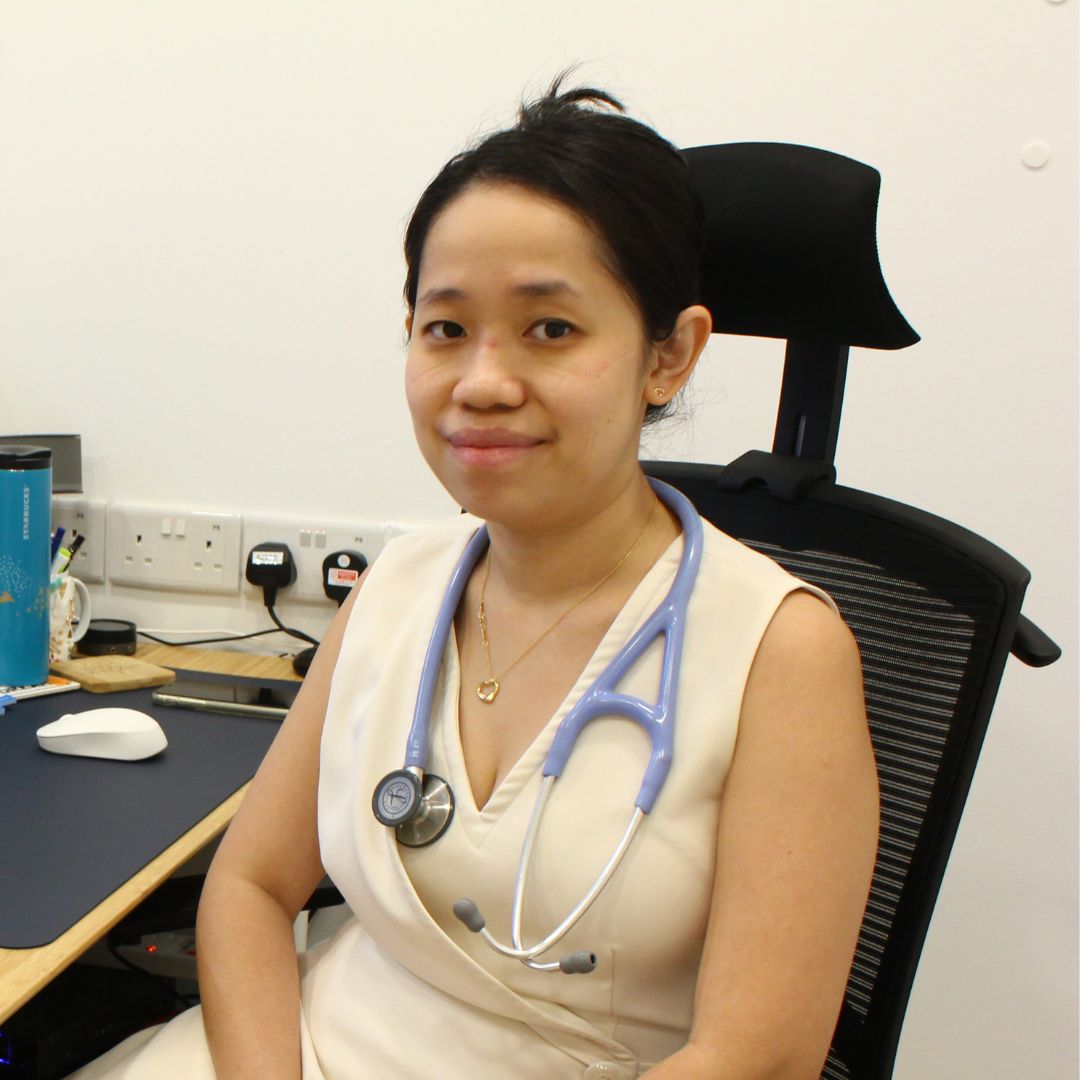
Dr Zhang Huipei
Medical Director
MBBS (Singapore)
Graduate Diploma in Family Medicine
Family Physician
Dr Zhang is in Clinic on Monday, Tuesday, Wednesday, Thursday and Saturday.


